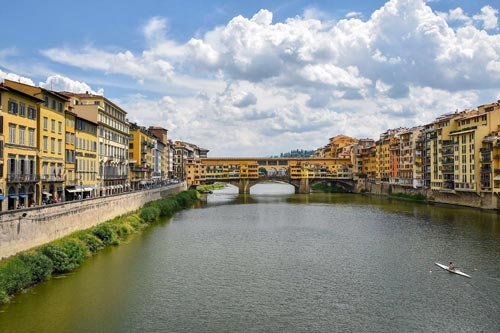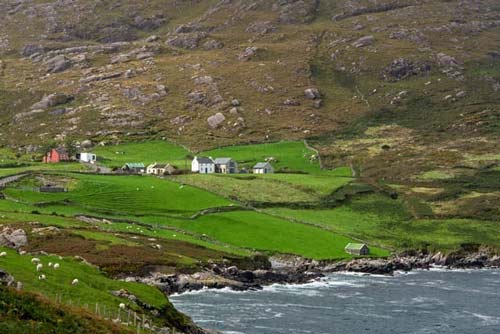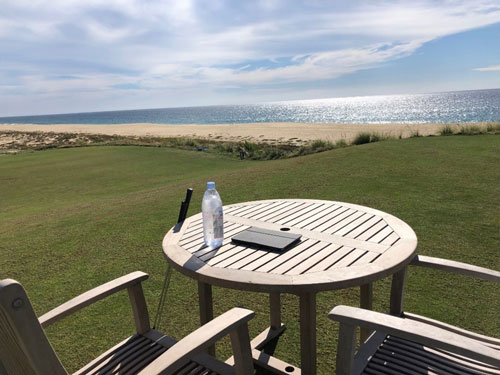
If you want a quick way to hand a country major financial debt, let them host an Olympics.
Some economists trace the beginning of Greece’s ongoing economic woes to the Olympics held in Athens in 2004. It cost the country $15 billion and left it with a shortfall of €50,000 per Greek household.
The Olympics in Japan last year was hailed as the most expensive ever held, and thanks to the pandemic there were no spectators or tourists to help cover the cost.
As a rule, hosting an Olympics is a terrible idea. But there are exceptions…
The 1992 Olympics in Barcelona, Spain is arguably one of the most successful of all time. Not because of what happened on the tracks but because of the lasting legacy of the event.
Before the Games, Barcelona was relatively undiscovered, attracting 1.7 million overnight visitors a year. It didn’t even have a beach! In anticipation of the Games, it replaced a huge stretch of its industrial waterfront with miles of golden sand.
The Olympics brought the city to the attention of the world and following the event tourism exploded. By 2006 Barcelona was seeing over 12 million overnight visitors a year, and 32 million by 2019.
The Olympics acted as a Path of Progress event for the city, delivering infrastructure and global exposure, making it a popular vacation spot for hip Europeans and those from farther afield seeking to tour Europe’s top spots.
As such, you might know Barcelona as a tourist city. I sure did until I went scouting there for real estate opportunity in the after math of the 2008/09 crisis.
The Spanish economy had imploded in a banking and financial crash. Real estate was set to fall by up to 80%. Spain had 2 million too many homes.
In Barcelona I found much less crisis than the rest of Spain. The economy is strong…a diversified industrial and technology and university base with high tech industries, many of Spain’s strongest companies and home to several powerful multinationals.
The greater Barcelona economy more closely resembles northern Europe than poorer and weaker southern Spain or Italy. “Does this place behave economically like Bavaria or Sicily?” is a question I often ask myself when scouting in Spain or Italy or Greece. Barcelona for sure is closer to Bavaria than Sicily.
My scout, Paul O’Sullivan was in Barcelona recently to test-run the city as a remote working base and to see if the tourism dip has flushed out any bargain properties.
Read his piece below…
Time to Buy in Barcelona?
By Paul O’Sullivan
“Weed, hashish, marijuana?”
It’s a question I’ve come to expect in Barcelona. I get asked it while strolling on the main tourist boulevard, Las Ramblas, or as I walk through the narrow streets of the Gothic Quarter. It gets a little tedious, but I’ll always decline politely. I consider the offer part of the experience of the city.
The Catalan capital in south eastern Spain is a place where you can get whatever you want. Indeed, it’s why so many people come here. It offers that irresistible combination of cosmopolitan city, warm weather, rich culture, lively nightlife, and long stretches of Mediterranean beach—bonus points if you follow soccer.
Each neighborhood brings its own charm. Ramble through the Gothic Quarter’s labyrinthine lanes and historic squares. Enjoy a seafood paella by the beach in Barceloneta. Go to Gràcia for a mix of traditional Catalan culture and trendy bars and restaurants. Stroll through L’Eixample to see some of Gaudí’s architectural masterpieces. Or climb to the top of Montjuïc for a little solitude and the best views over the city.
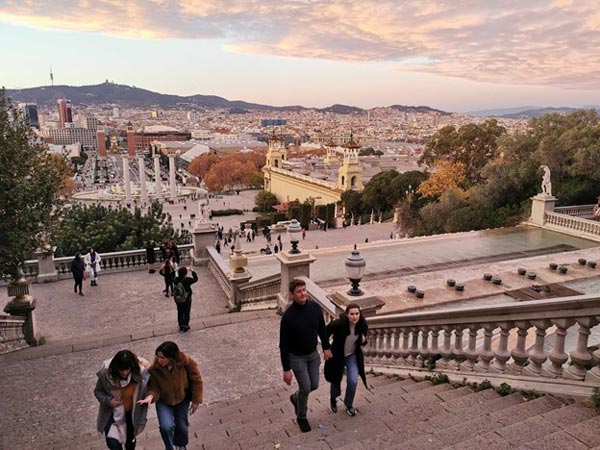
You’ll never be far from a tapas bar where you can savor a glass of wine while a waiter serves you cured Iberian ham, patatas bravas, and croquettes filled with wild mushrooms or local cheese.
Likewise, you’ll always find a family-run bodega with their rows of casks and wine served straight from time-darkened barrels. If you’re on the go just grab an empanada from a corner bakery, a folded baked dough stuffed with just about anything.
I’ve found it next to impossible to travel across the city without being tempted into a food stop. That’s what drew me into Mercat de la Boqueria, the busiest (and arguably the best) local market in the city, which sits at the edge of a neighborhood that might just have some of the most attractive bargain real estate in the city.
The neighborhood is called Raval, and it’s a place I heard various reports about since arriving here. It has a reputation for being one of the most vibrant spots in Barcelona. It’s home to the Museum of Contemporary Art, the National Library of Catalonia, as well as Mercat de la Boqueria.
This is the part of town where locals come to bar hop. It’s multicultural. You’ll see halal and Asian food stores, falafel takeaways, and Indian restaurants. It’s also known as one of the more bohemian and artsy neighborhoods, with lots of graffiti art and galleries.
My interest, however, was the real estate. And here’s why: Raval has some of the cheapest properties in the city, despite being incredibly central. It’s right next to Las Ramblas, the city’s famed pedestrian boulevard, and on the other side is the hip Sant Antoni neighborhood as well as Montjuïc.
Yet, this area hasn’t undergone the same tourism-driven transformation as other central neighborhoods like Barceloneta. I wanted to understand why, and whether there’s an opportunity here to uncover what Ronan calls “overlooked and unloved” real estate—the kind of property that gets ignored by the locals, that you can pick up for a bargain despite its prime location.
Of course, not everything I heard about Raval was positive. It also has a reputation of being a little unsafe. And yes, some of the quieter streets away from any tourist landmarks do feel like they require a bit of caution. But it didn’t take long to get the pulse of the place and figure where the nicer spots were and where the most promising real estate might be found.
There are lots of signs of regeneration in Raval. Places like the acclaimed “five-star dive-bar” Two Schmucks, and vegan-friendly Fruits and Roots, attract a hip young crowd to the area. But it doesn’t feel like the neighborhood is undergoing a sweeping gentrification. At least not yet.
If you’re searching for bargains here, my advice is to stay close to Las Ramblas. Once you head west of Raval’s central square, Rambla del Raval, the area turns residential and a little grotty, without the Art Nouveau flair you’ll find elsewhere in the city.
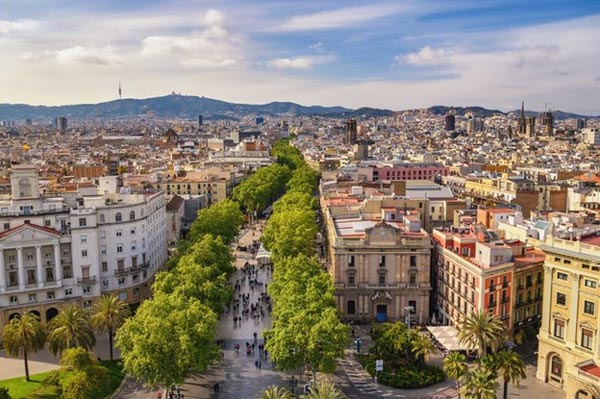
For value and location, Raval is hard to beat. I found a renovated one-bedroom apartment for €149,000; a newly renovated penthouse apartment with a large rooftop terrace here for €240,000.
But perhaps my best find on my brief excursion to Raval was a spacious three-bedroom home listing for €250,000. It looks in pretty good condition, overlooking two streets with lots of natural light. It’s also very close to a metro stop, which gives you easy access to rest of the city.
While Raval offers some of the best value in the city, you can still find good deals in other neighborhoods. For an extremely popular European tourist city, Barcelona isn’t crazy expensive. Like many European cities that were heavily dependent on tourism, the pandemic has led to a shakeout in the real estate market. Rental prices have plummeted as empty vacation rentals moved to the long-term market and as city center renters moved to the outskirts in search of more space and greenery.
As a result, real estate prices have fallen too. And due to the introduction of rental caps, and new restrictions of Airbnb rentals in the city, there has been no rush of new investors to take advantage of the price dip.
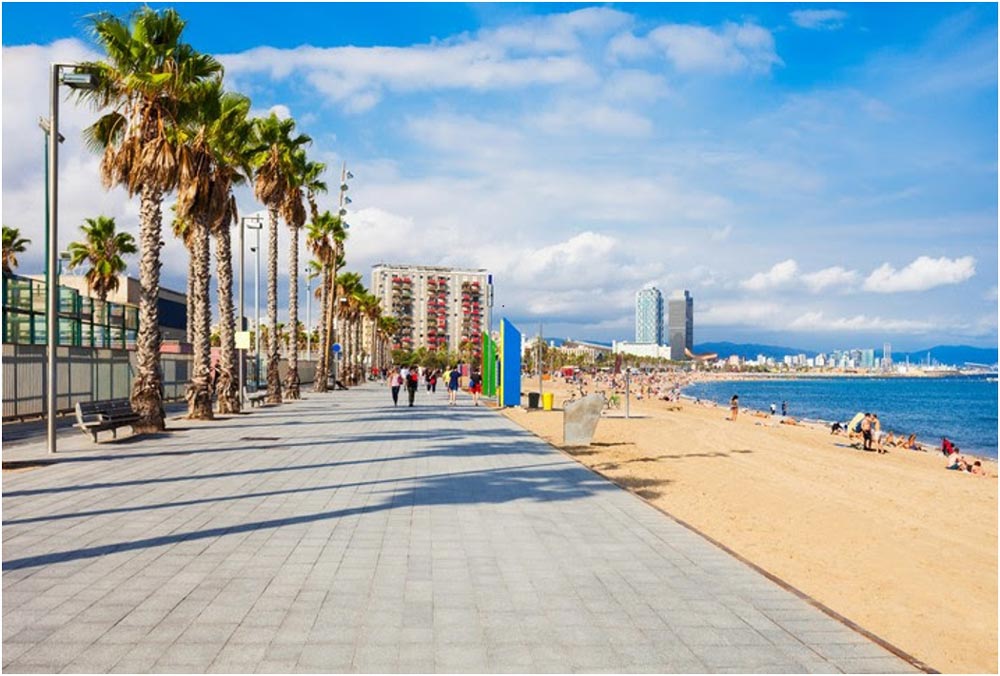
This makes it a good time to buy in Barcelona if you’re simply looking for a base in the city. However, as an investment, the new regulations make it a less than ideal prospect.
In order to run an Airbnb in Barcelona you need to have a license, which the city may or may not grant you. It has, in the past, ceased giving out new licenses entirely. To qualify you’re expected to use your property exclusively as a rental and renting out single rooms is now banned.
However, this is Spain—or Catalonia rather—and a quick scan through Airbnb’s website will tell you that not everyone is abiding by the regulations.
Indeed, the city has a history in this regard. Even Antoni Gaudí’s famed Sagrada Família basilica was in breach of the city’s regulations until only recently. The site was issued its work permit just two years ago, 137 years after construction began.
Whether Barcelona will continue to clamp down on vacation rentals is anyone’s guess. But like the Sagrada Família, they’re too profitable to ban entirely. Owning a licensed Airbnb here during a regular tourist season could be hugely profitable. But as it stands, the situation in the city is too precarious.
So, forget investing here. But if you’re looking for a lifestyle buy, there are few cities in the world that can compete.
